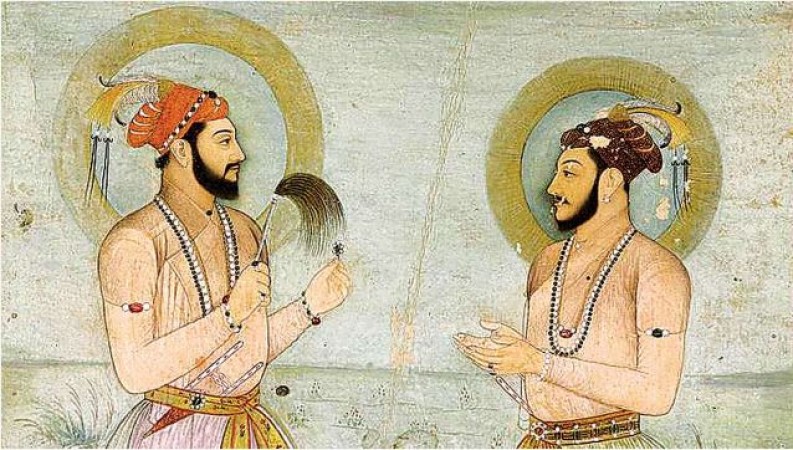
Prince Dara Shikoh, the eldest son of Emperor Shah Jahan and Mumtaz Mahal, was a prominent figure in Mughal history known for his deep interest in spirituality and philosophy. Born on 20 March 1615, he was raised in the opulence of the Mughal court, surrounded by luxury and cultural richness. Yet, it was his insatiable thirst for knowledge and understanding that set him apart from his contemporaries.
From an early age, Dara Shikoh displayed a remarkable inclination towards the intellectual pursuits of his time. He immersed himself in the study of various religious and philosophical texts, seeking to comprehend the essence of different faiths. As he delved into the realms of knowledge, he became particularly captivated by the teachings of the Vedas and Upanishads, the sacred scriptures of Hinduism.
Dara Shikoh's interest in the Vedas was not merely an academic curiosity; it reflected his genuine quest for unity among diverse religious traditions. He firmly believed in the underlying harmony and shared wisdom that could be found within the religious scriptures of India. Inspired by this vision of interfaith dialogue, he set out on a noble endeavor to translate several significant Hindu texts into Persian, the official language of the Mughal court.
One of his most notable translations was that of the Upanishads, the ancient philosophical texts that delve into the nature of reality and the self. He also undertook the translation of the Bhagavad Gita, a sacred Hindu scripture containing spiritual and ethical teachings. Furthermore, Dara Shikoh commissioned translations of the Yoga Vasistha, a revered text on the path of self-realization.
His translations were not merely linguistic exercises; they were driven by a genuine desire to foster mutual understanding and appreciation between the followers of different faiths. Dara Shikoh firmly believed that these translated texts could bridge the gap between Islam and Hinduism and serve as a foundation for religious harmony in India.
However, his quest for unity and religious synthesis was not without opposition. His brother Aurangzeb, who eventually ascended to the Mughal throne, held more orthodox Islamic beliefs and saw Dara Shikoh's endeavors as a threat to the traditional religious order. A bitter power struggle ensued, and Aurangzeb emerged victorious, leading to the capture and execution of Dara Shikoh in 1659.
The tragic fate of Dara Shikoh has been etched into history, but his legacy as a visionary scholar advocating for religious harmony lives on. His translations of Hindu scriptures into Persian became an enduring contribution to the intellectual and cultural heritage of India. Even today, Dara Shikoh's vision of unity and understanding remains a testament to the potential of interfaith dialogue in building a more inclusive and harmonious society. His life and teachings continue to inspire generations, reminding us of the importance of embracing diversity and promoting mutual respect among all faiths.
Talat Mahmood: The Velvet Voice that Conquered Hearts
Delhi Ordinance on Control of Services Bill Not Listed Today: Pralhad Joshi
Rekha: The Legendary Actress Whose Life Was Touched by Tragedy and Glory